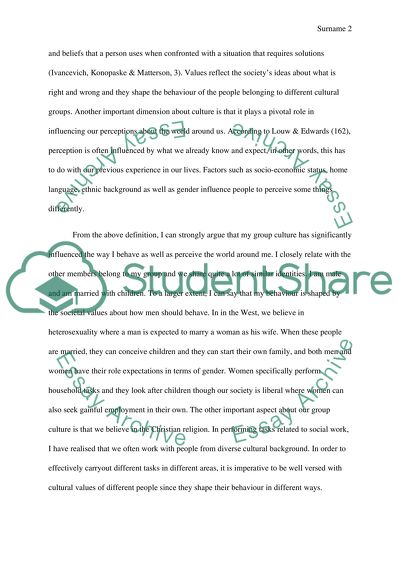Cite this document
(“Cultural Values Essay Example | Topics and Well Written Essays - 1250 words”, n.d.)
Retrieved from https://studentshare.org/psychology/1485731-cultural-values
Retrieved from https://studentshare.org/psychology/1485731-cultural-values
(Cultural Values Essay Example | Topics and Well Written Essays - 1250 Words)
https://studentshare.org/psychology/1485731-cultural-values.
https://studentshare.org/psychology/1485731-cultural-values.
“Cultural Values Essay Example | Topics and Well Written Essays - 1250 Words”, n.d. https://studentshare.org/psychology/1485731-cultural-values.


